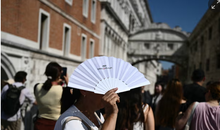
 Flash News
Flash News
Korça/ 40-year-old man jumps from fifth floor balcony, in critical condition
Croatia restores compulsory military service
Illegal constructions in Theth, Manja demands disciplinary proceedings against prosecutor Elsa Gjeli
Details from the murder of Renis Dobra, the perpetrators came with 2 Range Rover cars from Rrëshen
The Supreme Court left him in prison, Meta addresses the 'Constitution'
Balkan Insight: Young people of the Balkans, frustrated by the economy, politicians and institutions
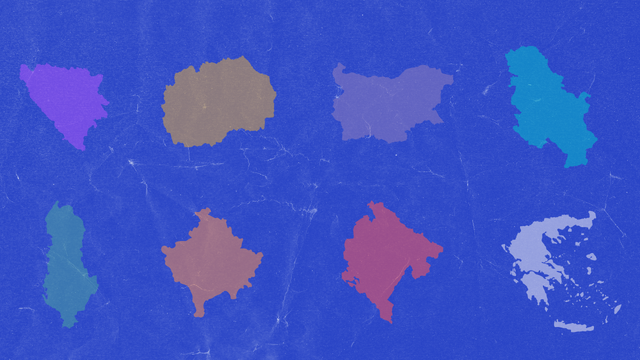
Economy, politics and inequality are the main concerns for young people in the Balkans, some of them told BIRN in interviews on the occasion of International Youth Day on August 12.
"I feel trapped. To be born here means to be born with the burden of the past which is also your present. All because cooperation and reconciliation are words long forgotten by our leaders,” said Selena Gjuric, 24, a student and human rights activist from Serbia.
She is one of eight young people from Kosovo, Serbia, Albania, Macedonia, Bosnia and Herzegovina, Bulgaria, Montenegro and Greece who spoke to BIRN on the occasion of International Youth Day, answering: "How does it feel to be young in the Balkans?"
In their interviews, they expressed bitter feelings. Anxiety and anger about the current situation is common, along with a deep lack of trust in politicians and institutions, said Oksana Duqi, 23, from Albania.
She loves her country, but explains that, "as for the main politicians of the state, they do not give anyone hope that they can implement policies for the benefit of the citizens. I try to avoid them, to save myself headaches and energy".
The sentiment is shared across the region. According to data presented in a Shared Futures report by the United Nations Development Program UNDP for International Youth Day last year, young people's satisfaction with their countries' governance systems and institutions is relatively low across the region. .
Asked to rate their government, parliament, judiciary, police and media on a scale of 1-5, with 1 being the lowest score, young people's average score ranged from 1.8 to 3, depending on the country.
"Living in Kosovo is like painting a sunset from a prison window. We watch the West on TV, on social media and read about it, but we are not allowed to touch it," said Gelonida Bajraktari, a 24-year-old from Prizren who lives in Kosovo's capital, Pristina.
"We see them run free, build great things and live up to their potential, while we build houses of cards lit by a candle that could burn us all down," she added.
Given the lack of trust in institutions and the region's high youth unemployment rate of around 33 percent, it's no wonder brain drain is a real problem for the area.
According to the latest Balkan Barometer report, 67 percent of young people across the Balkans are considering leaving their country and working abroad. The numbers are huge, but this is seen as a major concern by only 18 percent of the general population.
“Të rinjtë këtu, duke iu bindur këshillave dhe shembullit të prindërve të tyre, duan të zhvillohen akademikisht dhe profesionalisht në një vend tjetër. Tregu aktual i punës nuk i lejon të rinjtë bullgarë të zhvillojnë plotësisht projektet e tyre të jetës sipas pikëpamjes së tyre botërore,” tha Liubomir Nikiforov, 26 vjeç, nga Bullgaria.
Shumica e të rinjve me të cilët folëm ishin plot shpresa dhe ambicie të larta. Disa duan të realizojnë ëndrrat e tyre në shtëpi.
"Wherever you go in the world, the story is similar. Activism for human rights, animal rights and environmental protection are imperative. I decided to localize my fight for rights and justice mainly in my native region", said Edi Frcovski, biology student and human rights activist from North Macedonia.
"Being young in the Balkans is definitely challenging, but I couldn't imagine myself growing up anywhere else," admitted Dzulisa Otuzbir, 27, a new European Ambassador from Sarajevo.
"There are many things that need to be changed or improved, but growing up and living here have made me a strong and resilient young woman," she told BIRN.
Taken from Balkan Insight
Latest news


Malltezi: SPAK admits, we are in a process that began with Balla's false report
2025-07-10 22:34:16

Si të çliroheni nga bllokimet emocionale me anë të ushtrimeve
2025-07-10 21:57:24

Lala: Veliaj wanted to return as mayor
2025-07-10 21:40:46

VIDEO/ Brawl in Bolivian parliament, deputies physically clash
2025-07-10 21:20:30


Albania experienced one of the longest heat waves of the last decade
2025-07-10 21:01:09

The Government approves new procedures for declaring residence in e-Albania
2025-07-10 20:39:32

Koka: Northerners will not forget Edi Rama's racist operation in Theth
2025-07-10 20:18:24
The 3 zodiac signs that will be most affected by the 'Full Moon' of July 10
2025-07-10 20:04:49
New director of the National Center of Cinematography appointed
2025-07-10 19:51:12
Korça/ 40-year-old man jumps from fifth floor balcony, in critical condition
2025-07-10 19:40:19
'Tired Woman'/ The Syndrome That Affects Thousands of Women Every Day
2025-07-10 19:34:02
Jane Birkin's original Hermès bag sells for $10 million
2025-07-10 19:26:22

Britain-Ukraine agreement signed for 5,000 Thales missiles
2025-07-10 19:00:25
Fire in Zvërnec, flames endanger two hotels
2025-07-10 18:57:19
Croatia restores compulsory military service
2025-07-10 18:39:01
Spahia: The great truth of the strong accusation of the residents of Theth
2025-07-10 18:35:07


The Supreme Court left him in prison, Meta addresses the 'Constitution'
2025-07-10 17:57:21
New punishment with 'new' regulations
2025-07-10 17:54:46
EU translator fired over fears for Zelenskyy's safety
2025-07-10 17:45:37
'You are a policeman, but not God, take my soul', protest for Agon Zejnullahu
2025-07-10 17:41:21


Video/ Rama repeats the scenario, kneels before Meloni again
2025-07-10 16:56:31
He set fire to a plot of olive trees, 50-year-old man arrested in Shijak
2025-07-10 16:46:19

Rubio: US and Russia have exchanged new ideas for Ukraine peace talks
2025-07-10 16:36:20
Death of 27-year-old, Lipjan Police Commander Resigns
2025-07-10 16:21:28
Video/ An apartment burns in Tirana near the New Bazaar
2025-07-10 16:09:36


Jensila lights up the internet with her birthday greetings to Ledri
2025-07-10 15:42:08
They're full of pesticides! List of 12 products we need to be careful of
2025-07-10 15:31:04

Worker falls from scaffolding in Shëngjin, urgently sent to Trauma
2025-07-10 15:11:03
Malltezi: Within one day they seized my accounts, properties and shares
2025-07-10 15:01:23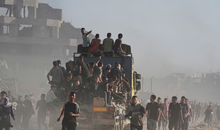
EU: Israel has agreed to more aid to Gaza
2025-07-10 14:55:19


Murder of Reni Dobra, 23-year-old's vehicle pulled from the water
2025-07-10 14:29:23
Trump's tariffs on Brazil raise coffee prices
2025-07-10 14:16:07
Ursula von der Leyen survives no-confidence vote
2025-07-10 14:04:27


Fire in Lezha, flames near electrical substation
2025-07-10 13:32:24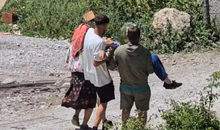
Residents clash with police in Theth, a woman faints
2025-07-10 13:24:38
"Rama and Xanun"
2025-07-10 13:15:46

Zodiac signs most likely to get divorced in July 2025
2025-07-10 12:45:51
A scapegoat for an illegitimate Republic
2025-07-10 12:35:02
"He has devastated his own nation"/ Berisha: Rama imprisons his opponents!
2025-07-10 12:26:54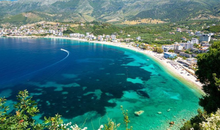

Albanian man injured with knife in Italy
2025-07-10 12:08:55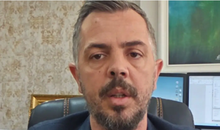
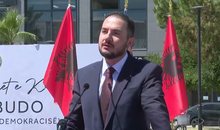


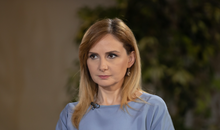

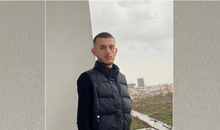
23-year-old in Mat drowned with rope, 4 suspects are being held
2025-07-10 10:58:53
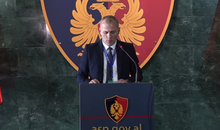
After the dismissals, the new director of the Shkodra Police is appointed
2025-07-10 10:30:10
BIRN: Rama's action for public spaces, a repeated spectacle
2025-07-10 10:29:11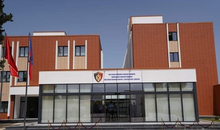
Action in Theth, Shkodra Police leaders dismissed
2025-07-10 10:16:28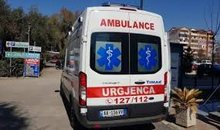
Fatal accident on the Tirana-Durres highway
2025-07-10 10:01:58
The incinerator does not exist, but the government continues to increase funds
2025-07-10 09:51:45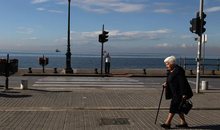
Albania is aging at a rapid pace! 30% of the population is over 60 years old
2025-07-10 09:46:23
End of an era, Modric says 'goodbye' to Real Madrid
2025-07-10 09:36:09
Mount Dukat has been on fire for 6 days, residents request air intervention
2025-07-10 09:27:24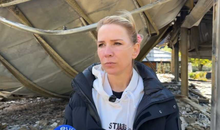

"Poverty on the rise"/ DW: Many people in Germany are not getting paid
2025-07-10 09:08:06
Horoscope, what do the stars have in store for you today?
2025-07-10 08:51:59

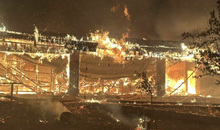
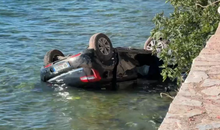

The scorching heat returns, the thermometer climbs to 40°C
2025-07-10 07:58:52
Morning Post/ In 2 lines: What mattered yesterday in Albania
2025-07-10 07:46:35
Tourist operator in Theth: They are demolishing our houses without warning
2025-07-09 22:54:57

Trump and Israeli commander warn: Gaza ceasefire could be near
2025-07-09 22:13:21
Fire in Elbasan Landfill, pedagogue: It is a cancer and environmental crime
2025-07-09 21:54:47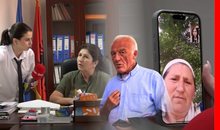


Dangerous summer, number of snake bites increases
2025-07-09 21:22:13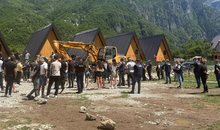
Berisha appeals again: Stop state terror against the residents of Theth!
2025-07-09 21:15:36
'Kissing disease' virus linked to several forms of cancer
2025-07-09 21:04:44
Malltezi confesses after release: Justice has become a political weapon
2025-07-09 20:51:48
Vokshi: Albania's EU integration has stalled due to lack of free elections
2025-07-09 20:37:21